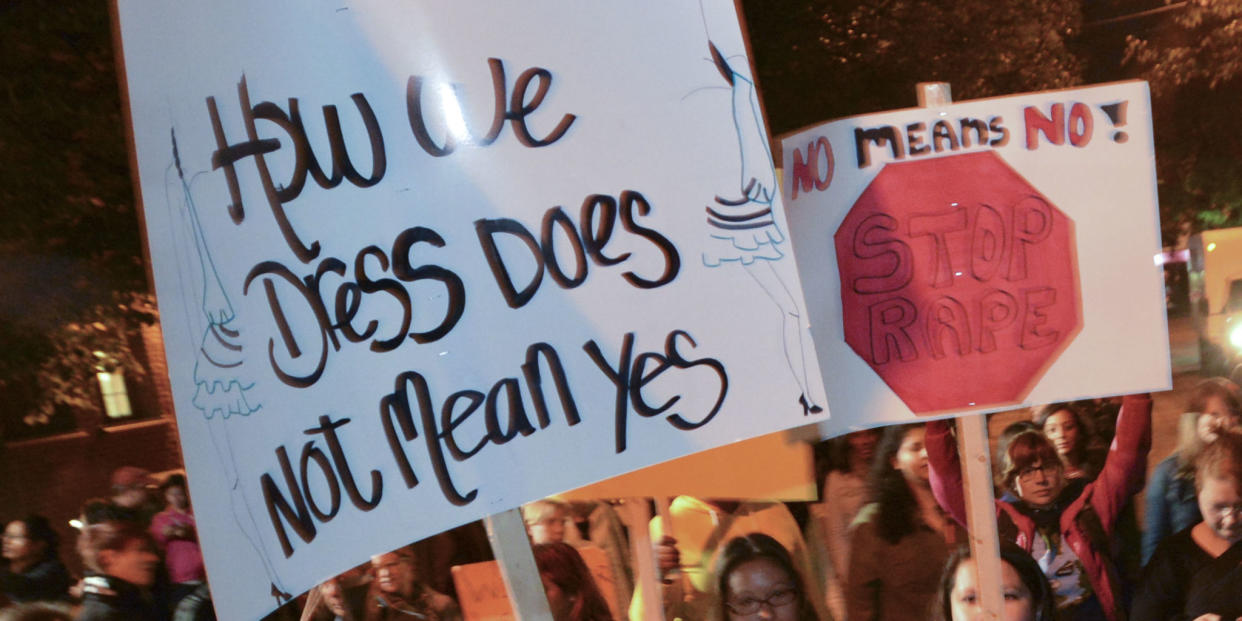A New Survey Shows How Women Buy Into Toxic Masculinity, Too

We already know that most women don't like to be catcalled, and that most men don't care. But according to a new survey from U.N. Women and Promundo, which explores masculinity and gender-based violence in Egypt, Lebanon, Morocco, and Palestine, plenty of women out there believe that if a woman's harassed on the street, it's because she was asking for it.
According to the study, "More women than men blame the victim for having been harassed." Nearly three-quarters of men said a woman's "provocative" clothing (which means just about anything) is just cause for street harassment, but in Egypt, 74% of men and 84% of women said a woman is to blame for being harassed if she's dressed the wrong way. More than half of women surveyed in Morocco said women who went out at night were asking for it.
This line of thinking is not unique to the Middle East/North Africa region either. In 2010, a survey of Londoners found 71% of women said a woman was to blame if she willingly got into bed with her rapist, compared to 57% of men. Sherry Hamby, a professor of psychology at the University of the South and founding editor of the APA's Psychology of Violence journal, told The Atlantic that this was part of the Just-World Hypothesis. "It's this idea that people deserve what happens to them. There's just a really strong need to believe that we all deserve our outcomes and consequences." She also said Americans particularly buy into this hypothesis, saying "Americans have a hard time with the idea that bad things happen to good people." And, given that America's president has been accused of sexual harassment many times before, American men are all the more encouraged to emulate that behavior.
A majority of men surveyed said they had committed some form of street harassment, including making sexual comments, following a woman, or overtly staring at her. "Almost 90 percent of those who had ever sexually harassed a woman or girl [in Egypt] said they did so for fun or excitement." Can't you pick up a board game or something?
So what do we have to blame for this behavior? Toxic masculinity. According to the study, "Understanding masculinity and men's views of gender equality in the MENA [Middle East and North Africa] region also requires attention to men's gender-specific realities. Youth unemployment rates in the MENA region are among the highest in the world. . .For young men in the region, social pressure to realize the 'provider' model of manhood is a frequent source of tension." And let's not pretend this is a regional thing. In 2014, 65% of U.S. women reported having been sexually harassed on the street.
Another unfortunate finding is that higher educated men were actually more likely to engage in sexual street harassment, due to societal pressure to assert their masculinity. It's an infuriating revelation of how the patriarchy is upheld by men and women alike.
You Might Also Like

